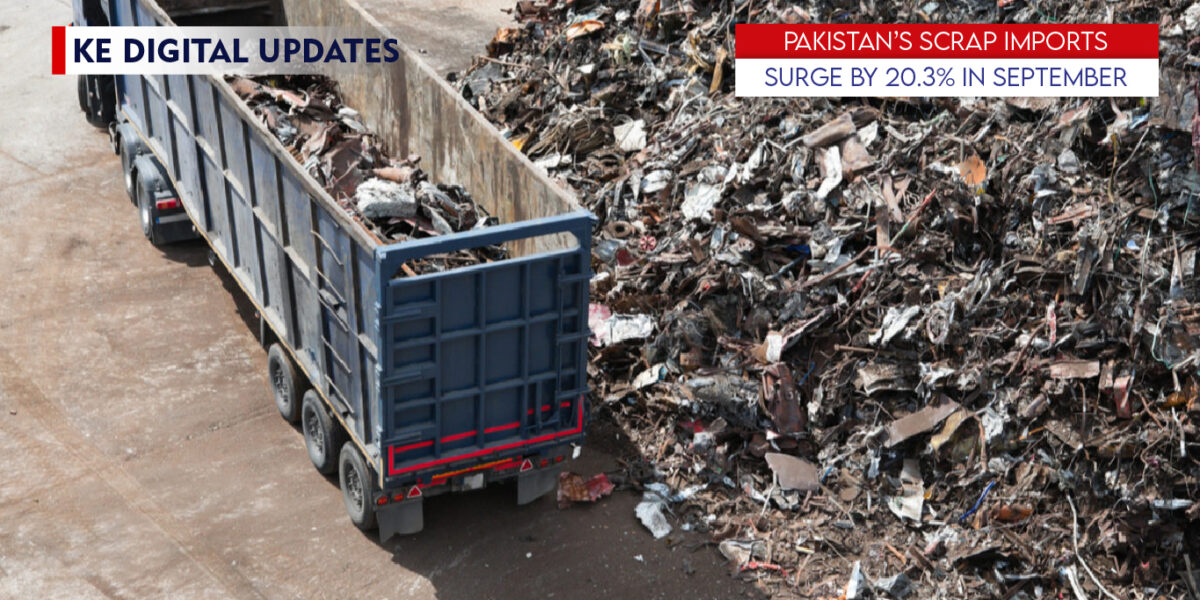Published on Oct 22, 2024
In a significant development for Pakistan’s steel industry, the country’s scrap imports notably increased in September. According to the latest figures released by the Pakistan Federal Bureau of Statistics (PFBS), scrap imports reached 211,539 metric tons (mt) in September, marking a 20.3 percent rise compared to August. This increase also represents a 4.7 percent year-over-year growth.
The financial value of these imports was recorded at $95.10 million for the month of September. While this figure shows a 3.7 percent increase compared to the same month last year, it reflects a slight decline of 2.04 percent from August’s value. This fluctuation could be attributed to varying global scrap prices and exchange rate dynamics despite the volume increase.
Iron and Steel Imports Also on the Rise
Parallel to the surge in scrap imports, Pakistan’s imports of iron and steel also experienced substantial growth. In September, the country imported 277,404 mt of iron and steel, a 36.5 percent increase from the previous month. On an annual basis, this represents a remarkable 63.2 percent rise.
The value of iron and steel imports for September stood at $184.79 million. This amount signifies a 24.5 percent increase compared to the same month in the previous year and a 50.5 percent rise from August. The sharp increase in both volume and value of iron and steel imports highlights the growing demand within Pakistan’s construction and manufacturing sectors.
Implications for the Steel Industry
The increase in scrap iron and steel imports indicates a robust demand within Pakistan’s steel industry. This demand is likely driven by ongoing infrastructure projects and a recovering manufacturing sector. The rise in imports also suggests that local production may not meet the current demand, necessitating higher imports.
However, the slight month-over-month decline in the value of scrap imports despite the increase in volume could point to fluctuating global scrap prices. This price volatility can impact local steel manufacturers’ cost structure, potentially affecting their pricing strategies and profit margins.
Conclusion
The latest data from the PFBS underscores a dynamic period for Pakistan’s steel industry, with significant increases in scrap iron and steel imports. As the country continues to develop its infrastructure and manufacturing capabilities, the demand for these raw materials is expected to remain strong. Monitoring global price trends and local demand will be crucial for stakeholders in the industry to navigate this growth phase effectively.


